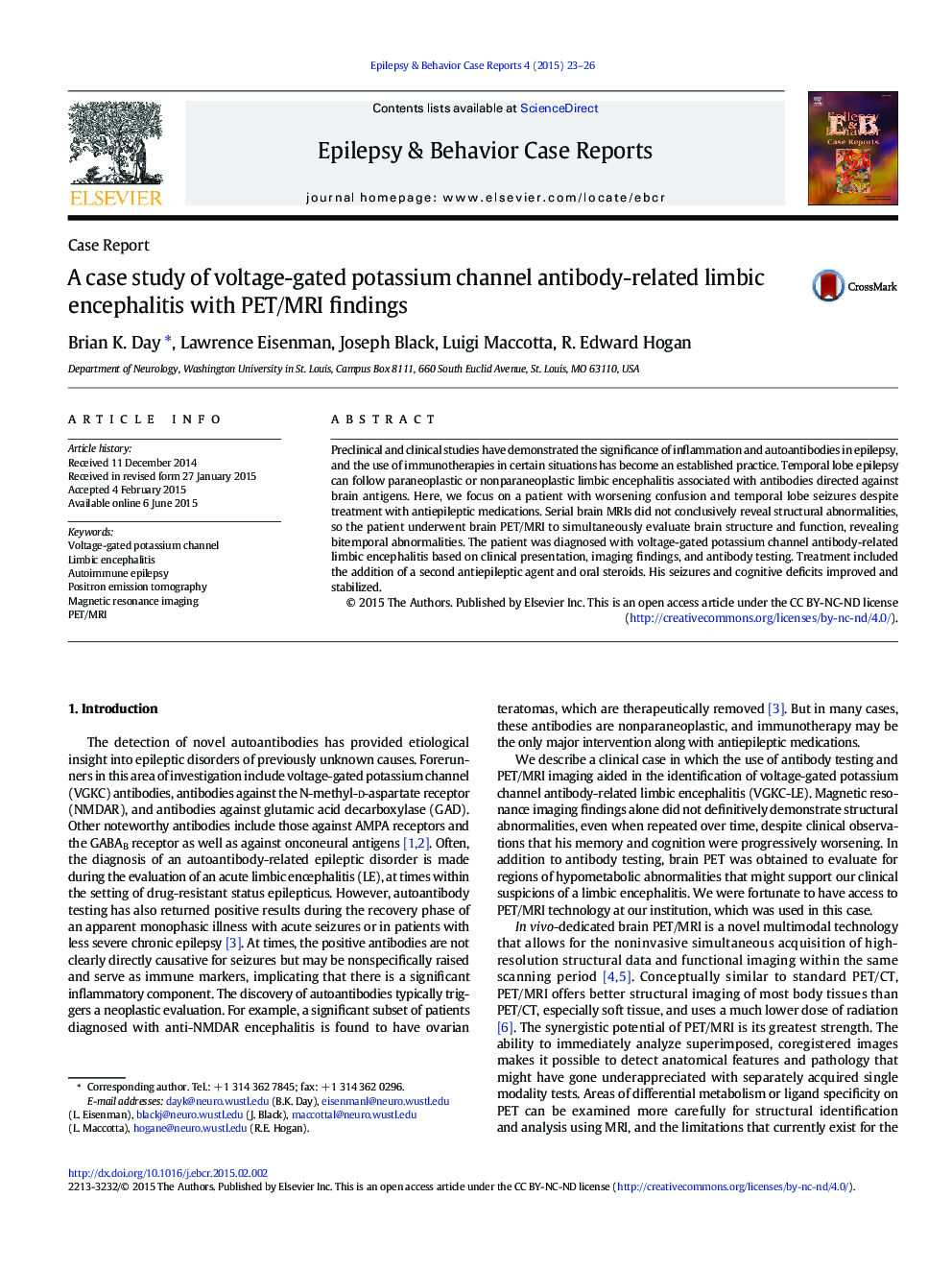| Article ID | Journal | Published Year | Pages | File Type |
|---|---|---|---|---|
| 3051740 | Epilepsy & Behavior Case Reports | 2015 | 4 Pages |
Preclinical and clinical studies have demonstrated the significance of inflammation and autoantibodies in epilepsy, and the use of immunotherapies in certain situations has become an established practice. Temporal lobe epilepsy can follow paraneoplastic or nonparaneoplastic limbic encephalitis associated with antibodies directed against brain antigens. Here, we focus on a patient with worsening confusion and temporal lobe seizures despite treatment with antiepileptic medications. Serial brain MRIs did not conclusively reveal structural abnormalities, so the patient underwent brain PET/MRI to simultaneously evaluate brain structure and function, revealing bitemporal abnormalities. The patient was diagnosed with voltage-gated potassium channel antibody-related limbic encephalitis based on clinical presentation, imaging findings, and antibody testing. Treatment included the addition of a second antiepileptic agent and oral steroids. His seizures and cognitive deficits improved and stabilized.
